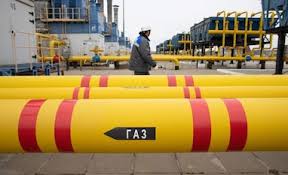CNG retailers want price hike, govt wants to see cost – Read
The government, with effect from November 16, cut supplies of low-priced natural gas coming from old fields to city gas retailers by up to 20 per cent. This reduction came on the back of a 21 per cent reduction on October 16.
City gas retailers IGL, which retails CNG in national capital and adjoining cities, Mahanagar Gas Ltd that does the same in Mumbai, and Adani Total Gas Ltd which operates in Gujarat and elsewhere, in regulatory filings flagged profitability concerns due to supply cut and hinted at price hike.
Officials in the ministry of petroleum and natural gas however are unimpressed as they feel the retailers operate on “hefty ” margins and can easily absorb the additional cost they may have to incur on replacing the lost volumes with slighted higher priced gas from new wells or imported LNG.
“Take for instance IGL. It posted a net profit of Rs 1,748 crore on revenue of close to Rs 16,000 crore in the fiscal year ending March 31, 2024. That is a margin of 11 per cent. MGL had a profit of about Rs 1,300 crore on a revenue of Rs 7,000 crore. Which retailer earns that kind of margin? ” a senior official asked.
Officials said the government is not against companies earning profits but if they want low-priced input (gas from old fields) then they should also declare the cost breakup of the final product (CNG).
There cannot be a situation where you insist on getting low cost input but will not reveal the buildup to the final product price, ” another official said. “The profitability numbers show they have been operating at huge margins. Indian Oil Corporation, which is also a retailer, had its best ever profit of Rs 39,617 crore on a revenue of Rs 8.71 lakh crore, implying a margin of 4.5 per cent. “
Natural gas pumped from below the ground and from under the seabed from sites ranging from the Arabian Sea to Bay of Bengal within India is the raw material that is turned into CNG for sale to automobiles and piped cooking gas to households.
Production from legacy fields, called APM gas and whose price is regulated by the government to feed city gas retailers, has been falling by up to 5 per cent annually due to the natural decline that has set in. This has led to supply cuts to city gas retailers, officials said.


Comments are closed.